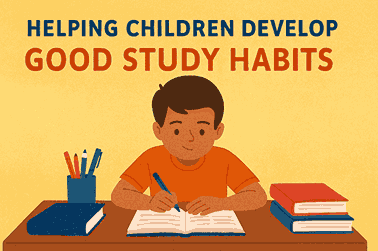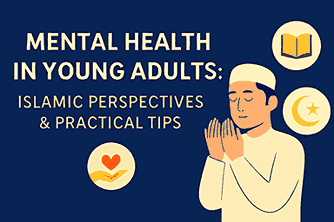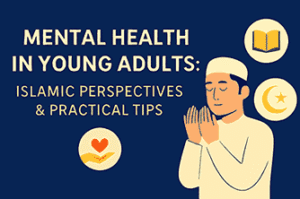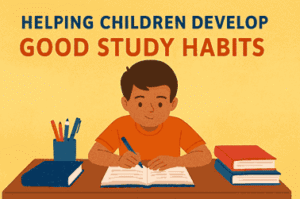Helping Children Develop Good Study Habits

As a pediatrician, I often meet parents who are concerned about their child’s academic performance. Many times, the issue is not a lack of intelligence but rather the absence of effective study habits. Good study habits do not come naturally; they must be nurtured and practiced over time. Just as children learn to brush their teeth daily for healthy oral hygiene, they must also learn to develop consistent study practices for academic success.
This article will explore practical strategies, backed by pediatric and developmental insights, to help children build strong study habits that will benefit them throughout their lives.
Why Study Habits Matter in Childhood
Childhood is a critical period for forming routines. At this stage, the brain is developing rapidly, and patterns of behavior become ingrained. When children adopt consistent study habits early on, they learn responsibility, discipline, and time management. These skills not only help them perform well in school but also prepare them for future challenges in higher education and professional life.
Children with poor study habits often feel overwhelmed, procrastinate, and struggle to retain information. This can lead to frustration, low self-esteem, and even anxiety. On the other hand, structured study practices provide stability and confidence, empowering children to approach schoolwork with a positive mindset.
Creating the Right Environment
The environment plays a vital role in a child’s ability to focus. A noisy or cluttered space distracts children, making it difficult to concentrate. Parents should ensure that children have a designated study area that is quiet, comfortable, and well-lit.
The study space should be free of television, mobile devices, and other distractions. A small desk with necessary supplies such as pencils, notebooks, and textbooks creates a sense of ownership and responsibility. Having a consistent place to study signals to the brain that it is time to focus, making the transition into study mode much smoother.
Establishing a Routine
Children thrive on structure. A regular study routine helps their bodies and minds prepare for learning. Parents can set aside a specific time each day for studying, preferably when the child is most alert. For younger children, shorter sessions with frequent breaks are more effective, while older children can gradually extend their study periods.
Consistency is crucial. When children study at the same time daily, it becomes a habit rather than a chore. Over time, this routine creates an internal clock that prompts them to sit down and concentrate without resistance.
Teaching Time Management
One of the biggest challenges children face is managing time effectively. Without guidance, they may spend hours on unimportant tasks and rush through essential ones. Parents can introduce simple tools such as planners or calendars to help children organize their work.
Breaking down assignments into smaller steps makes large projects less intimidating. For example, instead of completing a science project in one sitting, children can spread the work over several days: research on the first day, preparation of materials on the second, and assembly on the third. This teaches them how to prioritize tasks and manage deadlines effectively.
Encouraging Active Learning
Passive reading is not enough to develop deep understanding. Children must be taught active learning strategies such as summarizing information, creating flashcards, or teaching concepts to others. When children explain a topic in their own words, they reinforce their understanding and identify gaps in their knowledge.
Parents can also encourage the use of visual aids like diagrams, charts, and mind maps. These tools cater to different learning styles and help children retain complex information more effectively. Additionally, incorporating games, quizzes, or interactive activities keeps the learning process engaging and enjoyable.
Balancing Study and Play
While study habits are essential, balance is equally important. Overloading children with endless study sessions can lead to burnout, stress, and loss of motivation. Pediatric research consistently shows that children learn best when there is a healthy balance between study, play, and rest.
Physical activity stimulates brain function, improves mood, and enhances concentration. Parents should encourage children to engage in outdoor play, sports, or hobbies. Adequate sleep is also non-negotiable, as tired children struggle to focus and retain information. Striking the right balance ensures that study sessions remain productive rather than draining.
Role of Parents in Supporting Study Habits
Parents play a central role in shaping study habits. Children learn by observing, and when parents display discipline and organization in their own routines, children are more likely to emulate these behaviors.
Instead of pressuring children, parents should offer encouragement and support. Praising effort rather than only results helps children develop a growth mindset. For example, saying, “I’m proud of how focused you were today” is more effective than only celebrating high grades.
Parents should also be involved without micromanaging. Asking children about their school day, reviewing homework together, and discussing study goals show that learning is valued at home. However, children should still have the space to take ownership of their learning journey.
Addressing Common Challenges Children Faces In Study Habits
Even with the best strategies, challenges arise. Some children may be easily distracted, while others may lack motivation. Parents should try to identify the underlying reasons. For instance, distractions may stem from an overstimulating environment, while lack of motivation may be due to low confidence or boredom with the material.
For distracted children, shorter study sessions with clear goals often work best. For unmotivated learners, connecting schoolwork to their interests can spark curiosity. If a child loves animals, relating math problems or reading exercises to animals can make learning more engaging.
If challenges persist, it may be helpful to consult teachers or pediatric specialists. Sometimes learning difficulties such as ADHD or dyslexia may hinder study habits, and early intervention can make a significant difference.
Using Technology Wisely
Technology can be both a distraction and a powerful tool. While unrestricted screen time may harm study habits, educational apps and resources can support learning. Parents should set boundaries around recreational screen use while allowing access to educational tools that enhance knowledge.
For example, online platforms that offer practice quizzes, interactive lessons, or language learning can make studying more engaging. The key is to guide children in using technology as a supplement rather than a replacement for focused study time.
Building Long-Term Discipline For Teaching Study Habits
The goal of teaching study habits is not just immediate academic success but long-term discipline. Good habits developed in childhood extend into adulthood. Children who learn consistency, time management, and responsibility early on are better equipped to handle the challenges of higher education and careers.
By emphasizing the value of effort, patience, and persistence, parents help children internalize discipline as a life skill. Over time, these habits shape not only academic outcomes but also personal growth, resilience, and self-confidence.
Conclusion
Helping children develop good study habits is one of the most valuable investments parents can make. From creating a supportive environment to teaching time management and encouraging active learning, every step builds the foundation for lifelong success. As a pediatrician, I have seen how structured routines, balanced lifestyles, and parental support transform children’s academic performance and overall well-being.
Ultimately, the aim is not just higher grades but nurturing children into disciplined, confident, and motivated learners. When parents, teachers, and children work together, study habits become more than just routines; they become stepping stones toward a brighter future.













Post Comment